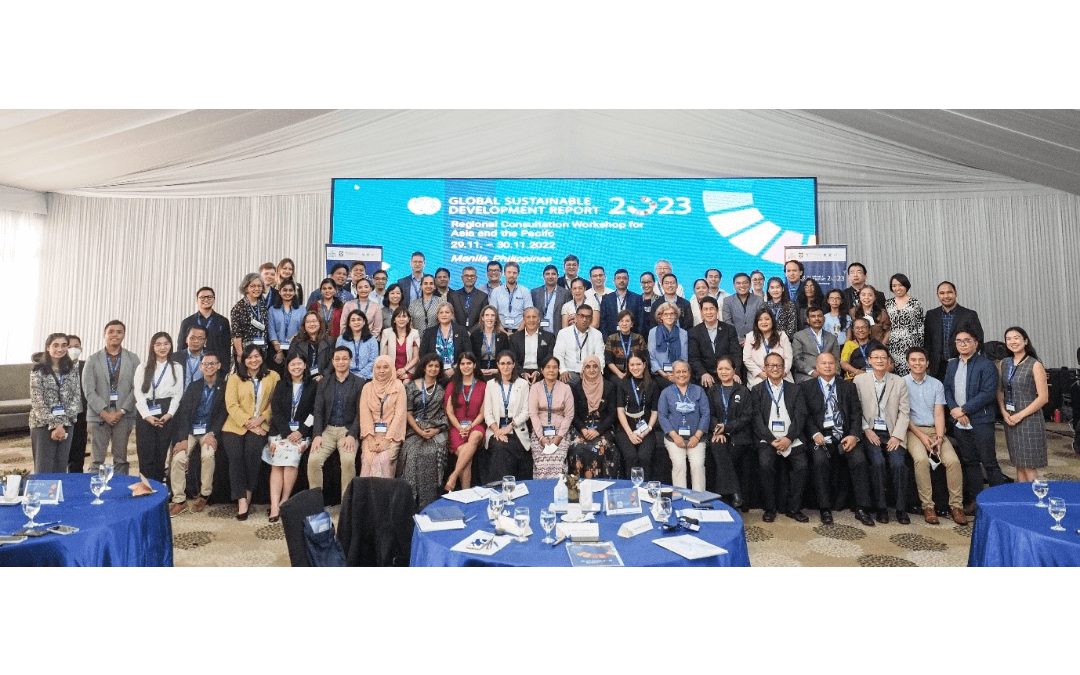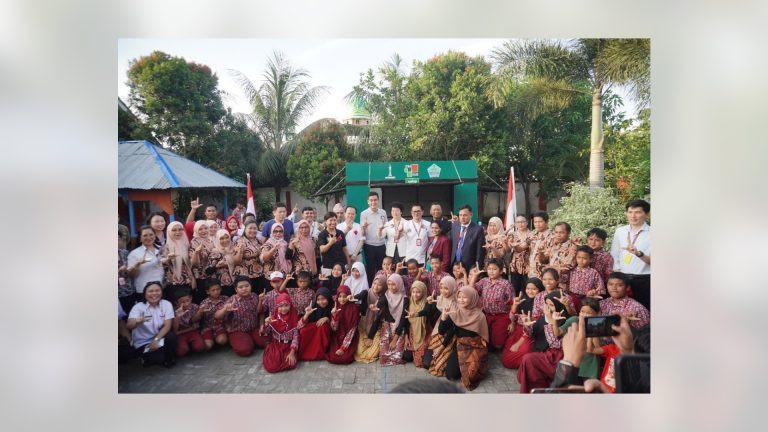Photo credit: Red P Santos/GIZ
November 29-30, 2022 | UCLG ASPAC, represented by Ambassador Madelaine Alfelor, former Mayor of Iriga, advocated the role of local governments in localising the Sustainable Development Goals (SDGs) during the Asia and the Pacific Regional Consultation Workshop for the Global Sustainable Development Report (GSDR) 2023 held on 29th and 30th November 2022 at Dusit Thani Hotel in Manila, the Philippines.
The GSDR was initially mandated by the outcome document of the 2012 United Nations Conference on Sustainable Development (Rio+20). In 2016, UN Member States decided to produce the report every four years and that it should be written by an Independent Group of Scientists, experts from the natural and social sciences representing developed and developing countries appointed by the UN Secretary General. The first report was published in 2019 and the second report will be presented at the SDG Summit in September 2023. The GSDR 2023 aims to strengthen the science-policy interface and to provide guidance on the implementation of the 2030 Agenda by presenting case studies and calls to action for governments, private sector actors, civil society, academia, and other stakeholders.

During the plenary session, UCLG ASPAC Ambassador Alfelor mentioned the Philippine context wherein the Seal of Good Local Governance (SGLG) pillars are based on the SDGs. The SGLG also provides an incentive to enable local governments implement their local development initiatives. However, she noted that among the 81 provinces, 146 cities, and 1,488 municipalities in the country, only around 300 have received the award so far.
UCLG ASPAC, in its written input submitted for the GSDR 2023, highlighted local government initiatives on the SDGs from the region and proposed the following recommendations: providing an enabling environment for local governments to ensure that mandates are linked with financial resource; increasing capacity building initiatives aimed at local government leaders and officials; and exploring mechanisms to synergise monitoring and reporting on the SDGs.











